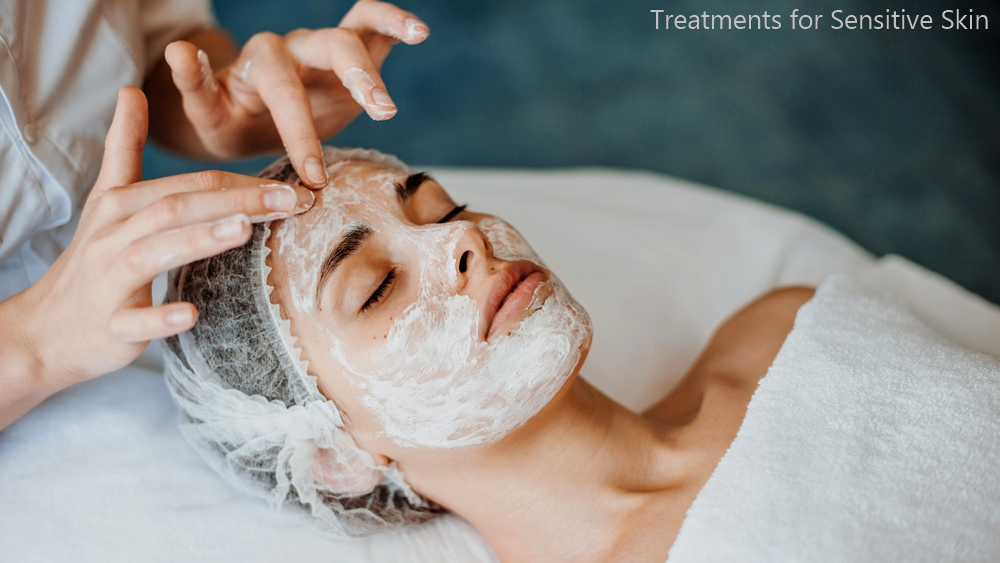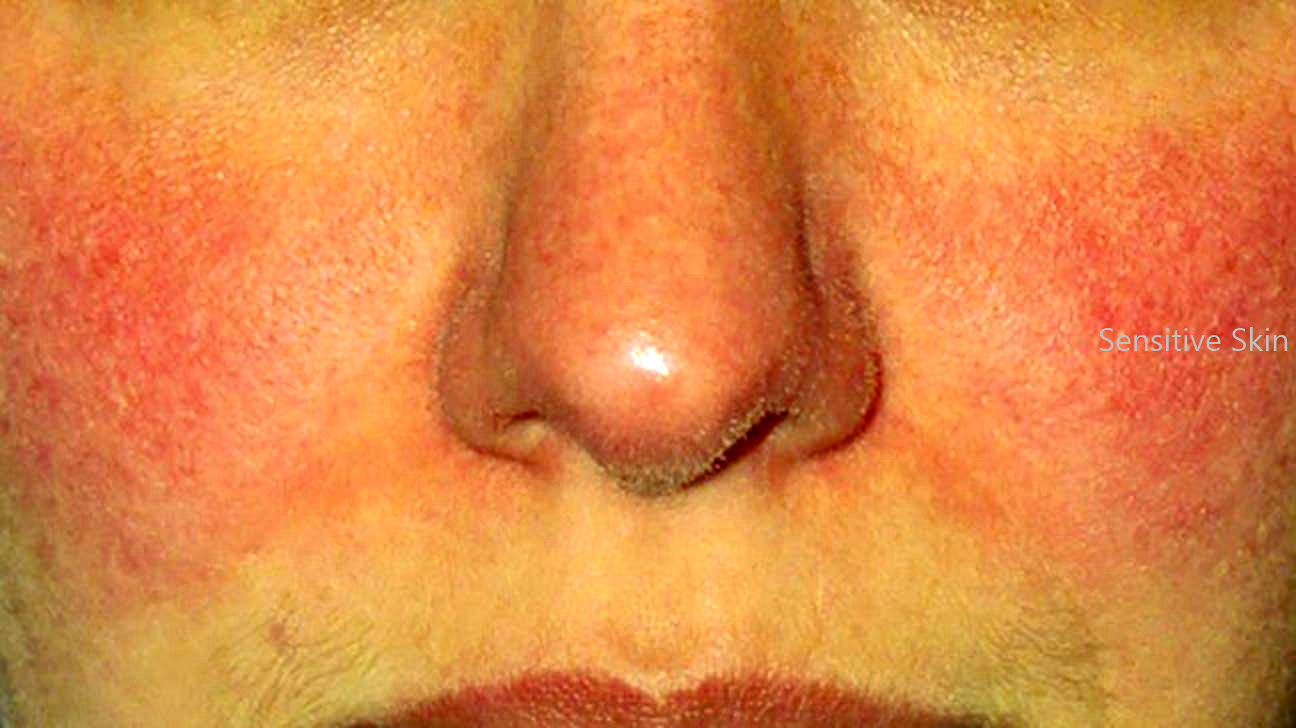Sensitive skin can be quite a challenge to manage, especially when you're not sure what's causing your skin to react. In this comprehensive guide, we'
Sensitive skin can be quite a challenge to manage, especially when you’re not sure what’s causing your skin to react. In this comprehensive guide, we’ll dive deep into some of the most common questions about sensitive skin. Whether you’re dealing with sensitivity for the first time or have been struggling for years, this article will provide you with the insights you need to better understand and care for your skin.
Contents
- 1 What is Sensitive Skin?
- 2 How Can You Tell if You Have Sensitive Skin?
- 3 What Triggers Sensitive Skin?
- 4 How Can You Care for Sensitive Skin?
- 5 Can Sensitive Skin Be Cured?
- 6 Is Sensitive Skin Hereditary?
- 7 How Does Sensitive Skin Differ from Allergic Reactions?
- 8 Can You Develop Sensitive Skin Later in Life?
- 9 How Does Sensitive Skin Affect Makeup Choices?
- 10 What Role Does Diet Play in Sensitive Skin?
- 11 Can Sensitive Skin Cause Other Skin Conditions?
- 12 Is It Safe to Use Exfoliants on Sensitive Skin?
- 13 What Is the Impact of Stress on Sensitive Skin?
- 14 Are Natural Remedies Effective for Sensitive Skin?
- 15 How Important Is Patch Testing for Sensitive Skin?
- 16 Can Weather Changes Affect Sensitive Skin?
- 17 What Should You Do If Your Skin Reacts to a Product?
- 18 How Does Hormonal Imbalance Affect Sensitive Skin?
- 19 Are There Professional Treatments for Sensitive Skin?
- 20 Conclusion
What is Sensitive Skin?
Definition and Characteristics
Sensitive skin isn’t a medical diagnosis but rather a condition where the skin is more prone to reactions like redness, itching, and dryness. It’s a term that broadly describes a skin type that reacts more easily to a variety of stimuli than normal skin.
Common Symptoms of Sensitive Skin
People with sensitive skin often experience symptoms like redness, dryness, itching, and stinging. These symptoms can occur immediately after applying a product or can develop over time.
Causes of Sensitive Skin
Sensitive skin can be caused by several factors, including genetics, environmental influences, and lifestyle choices. It’s important to identify what triggers your sensitive skin to better manage it.
How Can You Tell if You Have Sensitive Skin?
Signs to Look For
If your skin often feels tight, itchy, or becomes red easily, you may have sensitive skin. Other signs include skin that burns or stings when using certain products or reacting to changes in the weather.
Related: Teen Skin Protection Use these tips for your skin.
Differences Between Sensitive Skin and Other Skin Types
Sensitive skin is often confused with other skin conditions like eczema or rosacea. Unlike these conditions, sensitive skin doesn’t always have visible symptoms and can be a more temporary state rather than a chronic condition.
What Triggers Sensitive Skin?
Environmental Factors
Environmental triggers such as pollution, extreme weather conditions, and even the sun can cause sensitive skin to react. It’s important to protect your skin with appropriate clothing and sunscreen.
Skincare Products and Ingredients
Certain ingredients in skincare products, like fragrances, alcohol, and preservatives, can trigger sensitivity. Always check the ingredient list and opt for products labeled for sensitive skin.
Lifestyle and Dietary Triggers
Lifestyle choices such as smoking, excessive alcohol consumption, and poor diet can also impact skin sensitivity. Foods that are spicy or acidic may exacerbate skin issues for some people.
How Can You Care for Sensitive Skin?
Best Practices for Daily Skincare Routine
Caring for sensitive skin involves a consistent, gentle skincare routine:
Cleansing
Use a mild, fragrance-free cleanser that won’t strip your skin of its natural oils. Avoid hot water as it can further irritate the skin.
Moisturizing
Moisturizing is crucial for sensitive skin. Look for hypoallergenic products that provide hydration without clogging pores.
Sun Protection
Sensitive skin needs protection from the sun’s harmful rays. Use a broad-spectrum sunscreen with an SPF of at least 30, and opt for physical sunscreens containing zinc oxide or titanium dioxide.
Ingredients to Avoid
Stay clear of products with harsh chemicals, alcohol, sulfates, and artificial fragrances. These can irritate and dry out your skin further.
Recommended Products for Sensitive Skin
Look for products that are dermatologist-tested, hypoallergenic, and labeled as safe for sensitive skin. Brands like Cetaphil, La Roche-Posay, and Aveeno often cater to sensitive skin.
Can Sensitive Skin Be Cured?
Management vs. Cure
While there isn’t a cure for sensitive skin, it can be managed effectively. Understanding your skin’s triggers and using the right products can significantly reduce symptoms.
Related: How To Get Pimple Free Glowing Skin in 30 Days
Tips for Managing Sensitive Skin
Identify your triggers, use gentle skincare products, stay hydrated, and protect your skin from environmental stressors. Regularly consult with a dermatologist to stay updated on the best care practices.
Is Sensitive Skin Hereditary?
Genetic Factors
Sensitive skin can indeed be hereditary. If your parents have sensitive skin, there’s a higher chance you might experience it too.
Family History and Sensitive Skin
A family history of conditions like eczema, rosacea, or allergies can also predispose someone to sensitive skin.
How Does Sensitive Skin Differ from Allergic Reactions?
Understanding Allergic Reactions
An allergic reaction occurs when the immune system overreacts to a substance, causing symptoms like hives, itching, and swelling. These reactions are more severe than typical sensitive skin responses.
Key Differences Between Sensitivity and Allergy
Sensitive skin generally means your skin is easily irritated, while an allergic reaction involves an immune response. Allergies can cause systemic symptoms, whereas sensitive skin reactions are usually localized.
Can You Develop Sensitive Skin Later in Life?
Factors That Contribute to Developing Sensitive Skin
Yes, it’s possible to develop sensitive skin later in life due to factors like hormonal changes, aging, and environmental exposure.
Age-Related Changes in Skin Sensitivity
As we age, our skin’s protective barrier can weaken, leading to increased sensitivity. This makes it crucial to adjust your skincare routine as you get older.
How Does Sensitive Skin Affect Makeup Choices?
Makeup Ingredients to Avoid
Avoid makeup with fragrances, parabens, and heavy metals. Choose products that are non-comedogenic and specifically formulated for sensitive skin.
Tips for Applying Makeup on Sensitive Skin
Always prep your skin with a good moisturizer and primer to create a barrier between your skin and the makeup. Use a gentle touch when applying products and opt for hypoallergenic makeup.
What Role Does Diet Play in Sensitive Skin?
Foods That May Trigger Sensitivity
Certain foods, such as dairy, gluten, and spicy foods, may trigger skin sensitivity in some individuals. Keeping a food diary can help identify these triggers.
Beneficial Foods for Sensitive Skin
Foods rich in antioxidants, vitamins, and omega-3 fatty acids, like fruits, vegetables, and fish, can help soothe and protect sensitive skin.
Can Sensitive Skin Cause Other Skin Conditions?
Connection to Rosacea and Eczema
Sensitive skin can sometimes lead to or coexist with conditions like rosacea and eczema. It’s important to monitor your symptoms and consult a dermatologist if conditions worsen.
Potential for Acne and Dermatitis
Although sensitive skin doesn’t cause acne or dermatitis directly, it can exacerbate these conditions if not properly managed.
Is It Safe to Use Exfoliants on Sensitive Skin?
Types of Exfoliants for Sensitive Skin
Opt for gentle exfoliants like lactic acid or enzyme-based exfoliants. Avoid harsh scrubs that can irritate the skin.
How to Exfoliate Safely
Exfoliate no more than once a week and always follow up with a soothing moisturizer. Perform a patch test before trying new exfoliating products.
What Is the Impact of Stress on Sensitive Skin?
Stress-Induced Skin Sensitivity
Stress can trigger or worsen sensitive skin by causing hormonal imbalances and inflammatory responses. It’s crucial to manage stress through activities like yoga, meditation, or exercise.
Managing Stress for Better Skin Health
Incorporate stress-reducing practices into your daily routine to help maintain healthy skin. This can also improve your overall well-being.
Are Natural Remedies Effective for Sensitive Skin?
Popular Natural Remedies
Aloe vera, chamomile, and oatmeal are popular natural remedies known for their soothing properties. However, natural doesn’t always mean safe, so patch testing is recommended.
Related: 12 Easy Lifestyle Changes for Youthful, Healthy Skin
Pros and Cons of Using Natural Remedies
While natural remedies can be effective, they may still cause reactions in some people. It’s essential to be cautious and consult a dermatologist before trying new treatments.
How Important Is Patch Testing for Sensitive Skin?
What Is Patch Testing?
Patch testing is a method used to determine if a particular product or ingredient will cause a reaction. It involves applying a small amount of product to a discreet area and waiting 24-48 hours.
Steps to Perform a Patch Test
Apply a small amount of the product to your wrist or behind your ear. Wait 24-48 hours and check for any reactions like redness or itching before using it on your face or body.
Can Weather Changes Affect Sensitive Skin?
Impact of Seasonal Changes
Changes in weather, such as dry winter air or hot, humid summers, can exacerbate sensitive skin. It’s essential to adjust your skincare routine accordingly.
Tips for Protecting Skin in Different Weathers
Use heavier creams during the winter to lock in moisture and lighter lotions in the summer to avoid clogging pores. Always protect your skin with sunscreen regardless of the season.
What Should You Do If Your Skin Reacts to a Product?
Immediate Steps to Take
If you experience a reaction, immediately rinse the area with cool water. Apply a soothing product like aloe vera or hydrocortisone cream and avoid the trigger product in the future.
Long-Term Solutions and Avoidance Strategies
Keep a skincare diary to track what products cause reactions and avoid known irritants. Regularly consult a dermatologist to tailor your skincare routine to your skin’s needs.
How Does Hormonal Imbalance Affect Sensitive Skin?
The Role of Hormones in Skin Health
Hormonal changes, such as those during pregnancy, menopause, or due to thyroid issues, can affect skin sensitivity. It’s important to be mindful of these changes and adjust your skincare accordingly.
Managing Hormonal Changes for Better Skin
Maintain a balanced diet, stay hydrated, and use hormone-friendly skincare products to help manage hormonal fluctuations.
Are There Professional Treatments for Sensitive Skin?

Dermatologist-Recommended Treatments
Treatments like laser therapy, chemical peels, or microneedling can be beneficial but must be tailored to sensitive skin. Always consult with a dermatologist first.
In-Office Procedures and Their Benefits
Professional treatments can help manage sensitive skin by reducing redness, improving texture, and calming inflammation. Ensure treatments are performed by qualified professionals familiar with sensitive skin.
Conclusion
Understanding and managing sensitive skin can seem like a daunting task, but with the right knowledge and tools, it’s entirely possible. By being mindful of your triggers, using gentle products, and consulting with professionals when needed, you can keep your skin calm and healthy.

COMMENTS